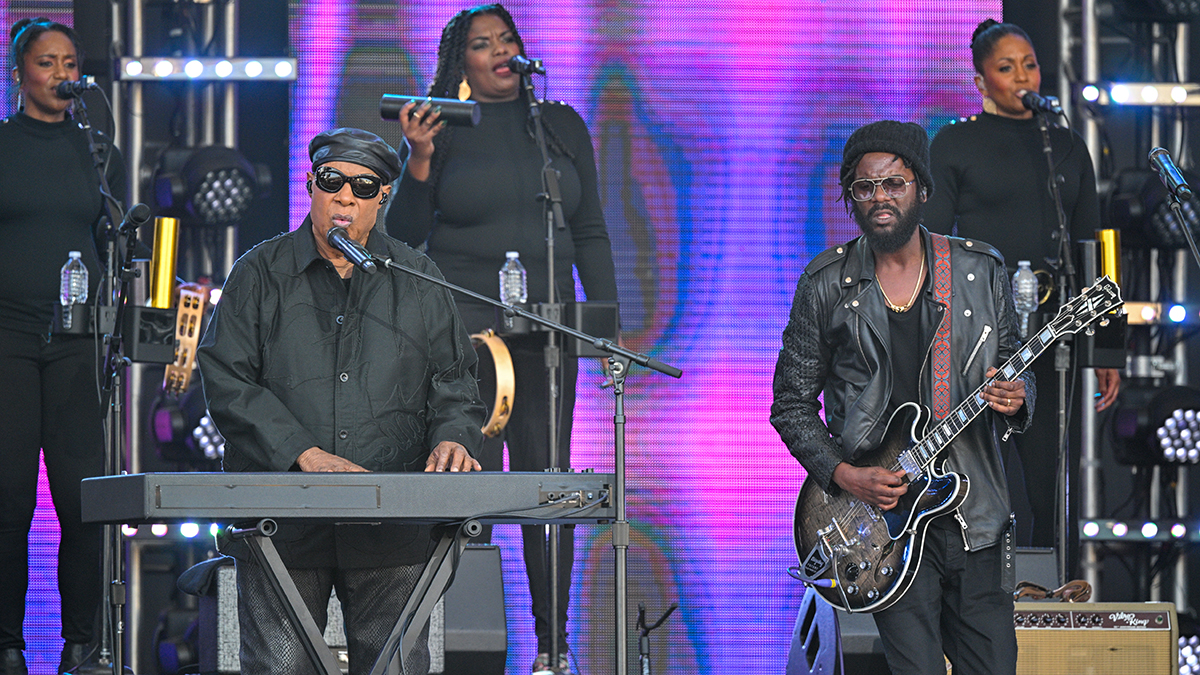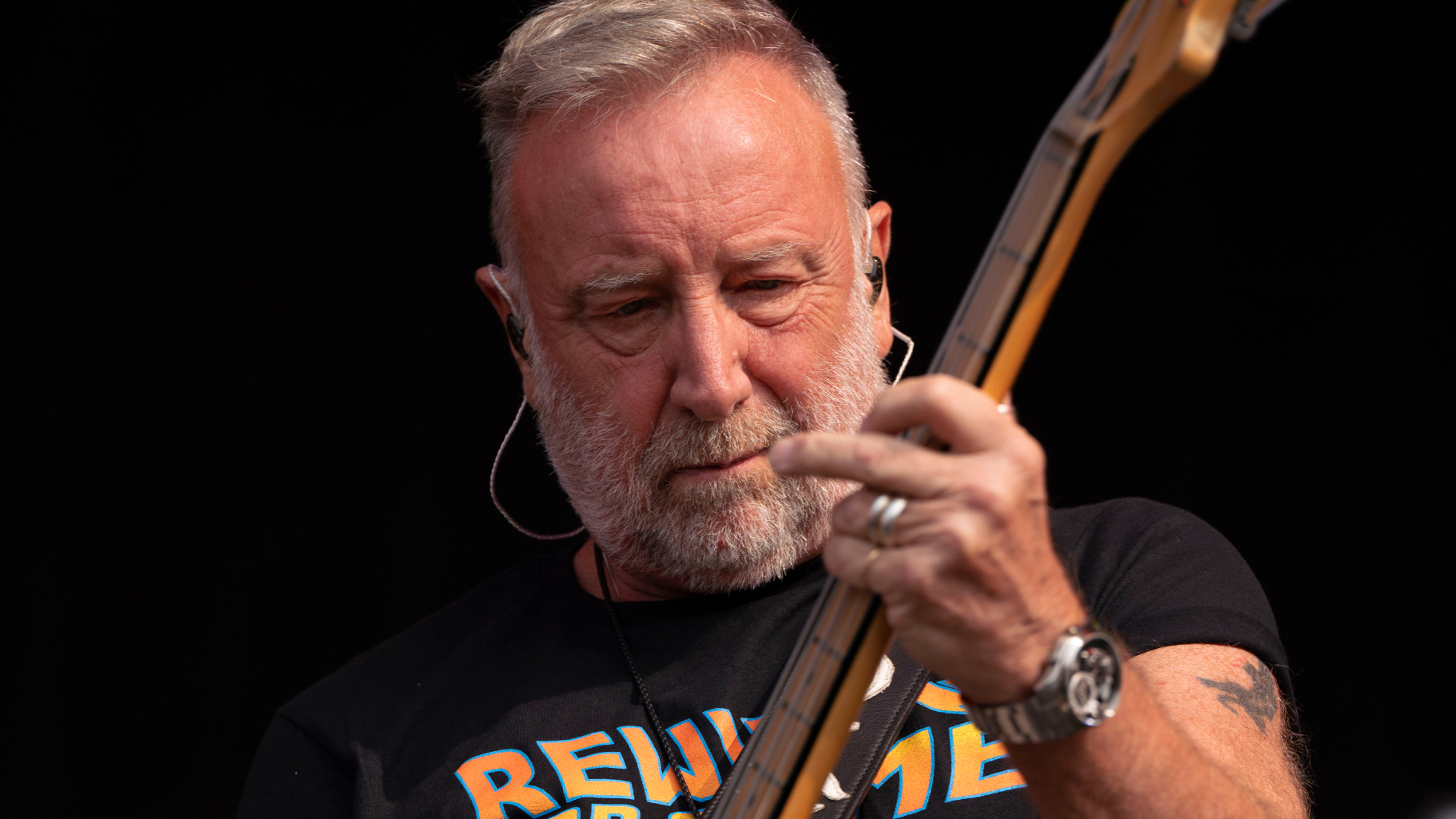Stevie Wonder flexes his Clavinet chops as he hits the stage with Gary Clark Jr to perform What About The Children
If you’re a fan of early-’70s Stevie, this might hit the spot
Stevie Wonder is admirably keen to keep up with the latest developments in music technology - he never seems to miss a NAMM Show, yet we always miss him - but there’s still nothing quite like watching him playing the Clavinet, one of the vintage keyboard instruments he’s most synonymous with (think Superstition and Higher Ground).
Which brings us to a new performance that he’s given on Jimmy Kimmel Live in the company of blues guitar virtuoso Gary Clark Jr. The pair duetted on What About The Children, a track from Clark Jr’s recent album, JPEG RAW, that harks back to Wonder’s golden early-’70s recordings.
Speaking to Forbes about the genesis of the song, Clark Jr said: “Stevie reached out to me in a time where there was a lot of death and violence by police and/or angry citizens for whatever reason. So, I made a video where I was just kind of frustrated and like, ‘What the hell's going on?’”
Continuing the story, Clark Jr recalls: “He called me and said, ‘I got a song for you. We gotta do a song.’ And I said, ‘Whatever the hell you want to do, man.’ So, he sends me this demo, and it's just audio from his phone, and he's playing this little harmonium. He goes, ‘What about the children... ‘ and he mumbles through most of this thing. He's like, ‘What do you think?’ And I go, ‘Well, it's great.’ He goes, ‘Well, think you could write something? Get some words to it.’ I said, ‘I'll get right back to you.’”

Clark Jr then worked up a demo of the track and sent it to Stevie, who agreed to sing on it and invited Clark Jr out to his LA studio so that they could record together.
“We talk about the song and he's like, ‘What do you want me to do?’ It's like, ‘Well, what do you want to do?’” Clark Jr recalled to Forbes.
“He’s like, ‘I don't know, play the harmonica.’ He sits there and sings. He puts this part on it. The guy sings. He works for hours, doing this thing over again trying to get it right on. He plays harmonica on this thing, the coolest bluesy sounding harmonica.
Get the MusicRadar Newsletter
Want all the hottest music and gear news, reviews, deals, features and more, direct to your inbox? Sign up here.
“To top it all off, I had my three sisters come in and sing backup on this track. We used to dance around in the living room, singing to Stevie Wonder when we were kids. We have this moment where we're singing with Stevie Wonder and it's like, my dad's crying when he hears it. It was amazing.”
There’s certainly something of vintage Stevie in not only the track, but also the Kimmel Live performance, in which Wonder is in fine touch and voice. If there’s any more where that came from, we’d certainly like to hear it.

I’m the Deputy Editor of MusicRadar, having worked on the site since its launch in 2007. I previously spent eight years working on our sister magazine, Computer Music. I’ve been playing the piano, gigging in bands and failing to finish tracks at home for more than 30 years, 24 of which I’ve also spent writing about music and the ever-changing technology used to make it.
“I’d be running from the studio to other speakers in the house, basically going insane trying to get mixes to sound correct”: Ezra Collective’s Joe Armon-Jones on why he created his Aquarii Studios and his dub-influenced mixing technique
“I haven’t been able to see the performance, but I have enjoyed it”: Elton John tells audience at Devil Wears Prada premiere that he’s lost his sight



![PRS Archon Classic and Mark Tremonti MT 15 v2: the newly redesigned tube amps offer a host of new features and tones, with the Alter Bridge guitarist's new lunchbox head [right] featuring the Overdrive channel from his MT 100 head, and there's a half-power switch, too.](https://cdn.mos.cms.futurecdn.net/FD37q5pRLCQDhCpT8y94Zi.jpg)





